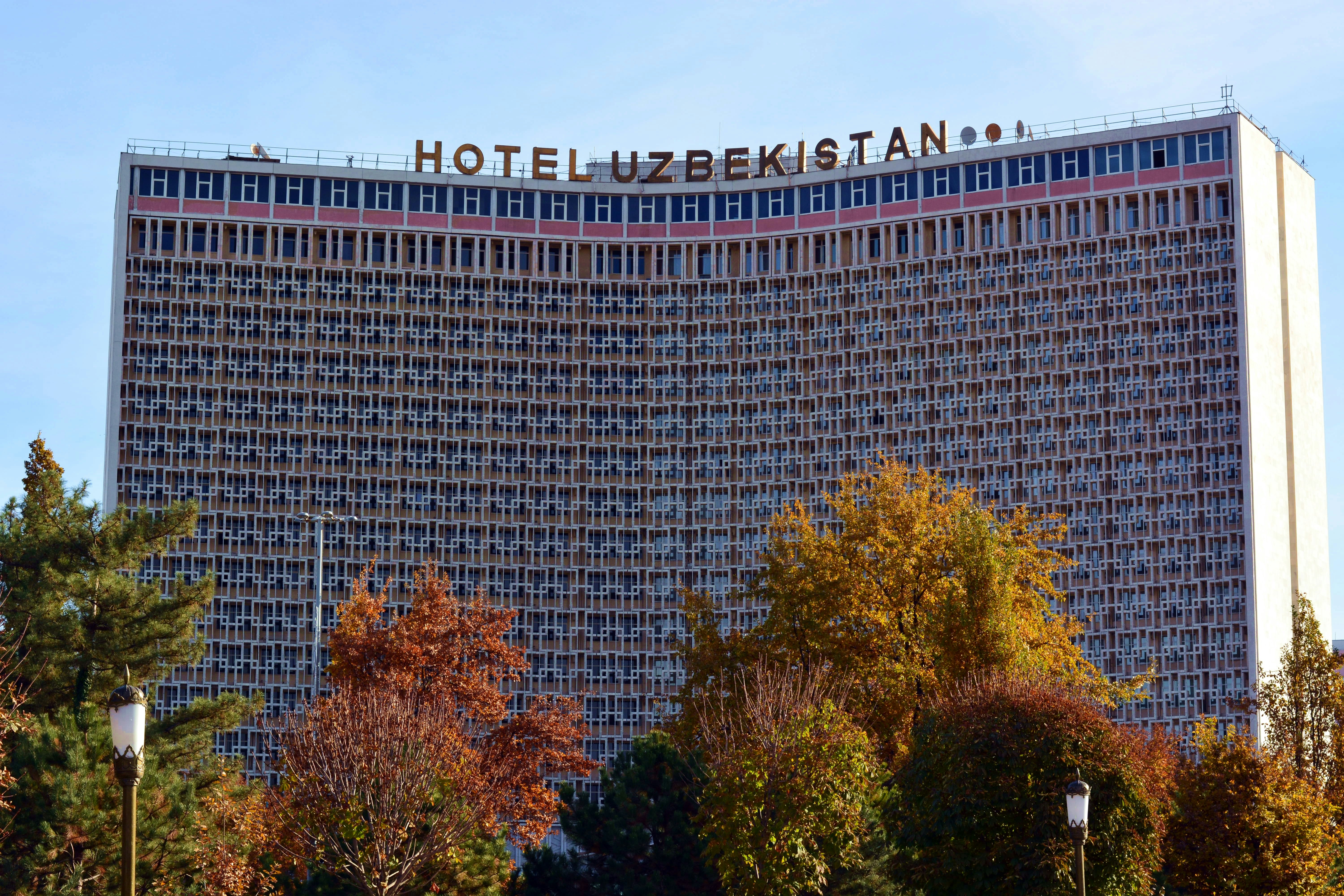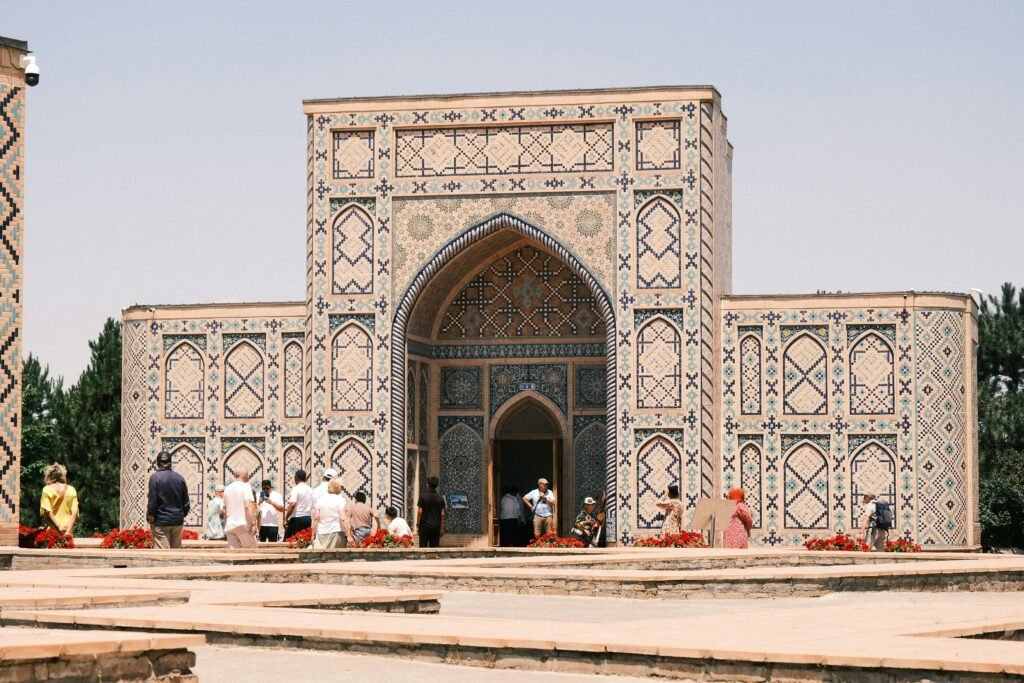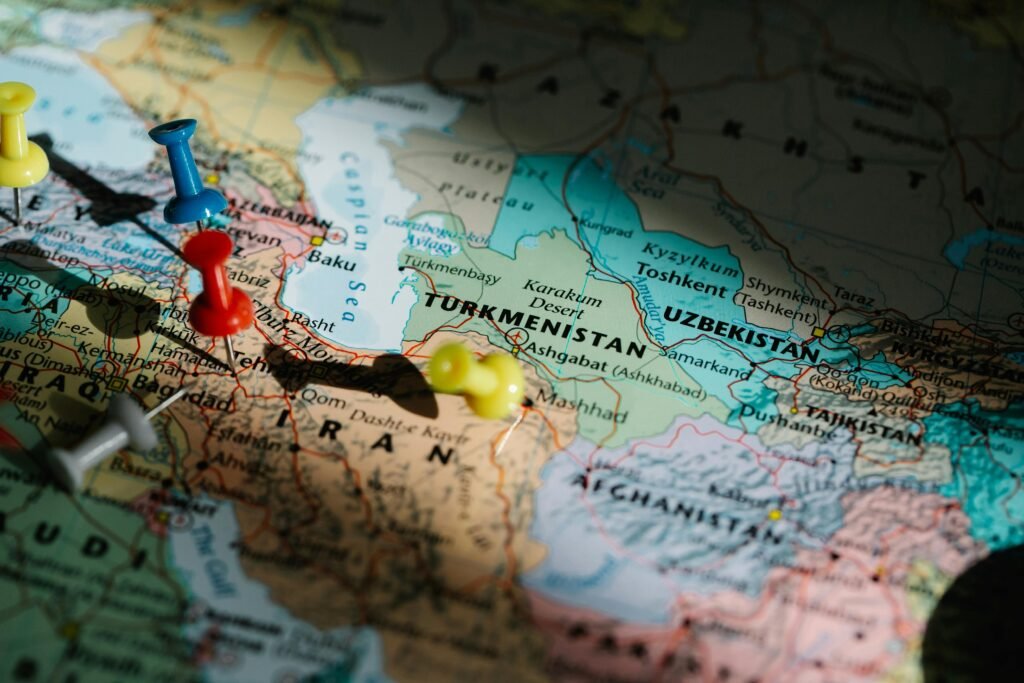Introduction to Uzbekistan: A Land of Treasures
Uzbekistan, strategically nestled in the heart of Central Asia, stands as a testament to the enchanting history and vibrant culture that define this remarkable land. As the home of significant sections of the ancient Silk Road, Uzbekistan showcases a rich tapestry of heritage, attracting those with a thirst for exploration and knowledge. This nation is often overshadowed by its more prominent neighbors; however, its diverse offerings make it an untapped gem worth discovering.

The history of Uzbekistan stretches back through millennia, boasting vast influences from various empires, including the Persian Empire and Genghis Khan’s Mongol hordes. As such, the architectural wonders throughout its cities, particularly Samarkand and Bukhara, reflect a unique blend of Persian, Arab, and Soviet influences. Visitors can marvel at the exquisite mosques adorned with intricate tile work and grand madrasas that once hosted scholars from across the globe, with rich histories that still resonate today.
Culturally, Uzbekistan is a melting pot of ethnicities, traditions, and languages. The country celebrates a variety of festivals, tantalizing cuisines, and longstanding customs that entice travelers to immerse themselves in local life. The hospitality of its people is renowned, offering a warm welcome to those curious enough to venture into this lesser-known region. Beyond its historical marvels, Uzbekistan is undergoing transformations that enhance its overall appeal as a travel destination. Modern infrastructure development and increased global connectivity are making it easier for tourists to explore its hidden treasures and diverse landscapes.
In showcasing its treasured heritage and embracing modernity, Uzbekistan presents a unique opportunity for travelers seeking a destination that is both rich in history and poised for future exploration. With its captivating Silk Road allure and cultural depth, this Central Asian country invites you to discover its remarkable stories yet to be told.
The Silk Road Cities: Samarkand and Bukhara
Samarkand and Bukhara, two prominent cities in Uzbekistan, stand as testament to the historical significance and architectural brilliance of the Silk Road. As crossroads of commerce and culture, these cities boast a rich heritage that continues to draw the attention of historians and travelers alike. Samarkand, often regarded as the jewel of Central Asia, is renowned for its stunning landmarks, most notably Registan Square, a UNESCO World Heritage site. This grand ensemble, featuring three magnificent madrasahs with intricately designed mosaics, showcases the artistry and craftsmanship of the Timurid era. Each building, embellished with brilliant tiles in shades of blue and gold, tells stories of a bygone era when Samarkand was a thriving hub of knowledge and trade.

Bukhara, equally remarkable, is home to the Ark Fortress, a symbol of the city’s enduring history. This citadel, once the residence of the rulers of Bukhara, reflects centuries of architectural evolution. Visitors can wander through its imposing walls and explore the museums within, which house artifacts that narrate the rich tapestry of Bukhara’s past. The city’s historical center, another UNESCO World Heritage site, is punctuated by stunning mosques, madrasahs, and bazaars, each echoing the grandeur of Silk Road trades.
The architectural marvels of both cities go beyond mere aesthetics; they embody the cultural exchanges that flourished along the Silk Road. As scholars and merchants traveled through these regions, they contributed to an environment where ideas, art, and science thrived. Today, Samarkand and Bukhara serve as vibrant living museums, inviting visitors to delve into their historical narratives while enjoying the unique atmosphere that combines the ancient with the contemporary.
Emerging Food Scene: A Culinary Journey
Uzbekistan’s food scene is undergoing a remarkable transformation, reflecting both its rich culinary heritage and the influences of globalization. Traditionally, Uzbek cuisine is characterized by hearty dishes that are often shared among family and friends. This communal aspect of dining showcases the significance of food in Uzbek culture, where meals are not merely acts of sustenance, but gatherings steeped in tradition. One of the most iconic dishes to experience is plov, a flavorful rice dish typically featuring lamb, carrots, and spices. Other staple dishes include laghman, a hand-pulled noodle dish often served with a savory meat and vegetable sauce, highlighting local ingredients that define the region’s diet.

As globalization has penetrated many aspects of life in Uzbekistan, the culinary landscape is also evolving. Increasingly, international influences have introduced a variety of flavors and cooking techniques, expanding the culinary vocabulary of local chefs. Young chefs are experimenting with traditional recipes, integrating modern cooking styles with age-old methods, resulting in innovative offerings that still pay homage to their roots. Visitors can witness this exchange of ideas at numerous restaurants and markets throughout the country.
For those looking to immerse themselves fully in the gastronomic culture, local bazaars are invaluable. Markets such as the bustling Chorsu Market in Tashkent and the bountiful Samarkand’s Siyob Bazaar offer an array of fresh produce, spices, and street food, allowing visitors to engage with local vendors and taste authentic specialties. As the food scene continues to evolve, travelers to Uzbekistan can expect an enriching culinary journey where tradition meets modernity, making every meal a memorable experience.
The Warm Hospitality of Uzbek People
Uzbekistan is not only celebrated for its stunning landscapes and rich history but also for the warmth and hospitality exemplified by its people. The moment one sets foot in this Central Asian country, the genuine friendliness of the locals becomes apparent. Uzbekistan’s inhabitants take great pride in their customs and traditions that revolve around hospitality, offering a welcoming embrace to travelers from around the globe. This hospitable nature is deeply ingrained in Uzbek culture, where the guest is revered, making it a significant part of daily interactions.
One of the most heartwarming traditions involves greeting guests with bread and salt—a customary gesture that symbolizes abundance and respect. Local homes often serve as informal guesthouses, where visitors can enjoy home-cooked meals featuring flavorful dishes like plov or dumplings, allowing travelers to experience authentic Uzbek cuisine. These culinary encounters often lead to lively conversations, fostering cultural exchange that enriches the travel experience. Engaging with locals offers a unique opportunity to delve into Uzbekistan’s diverse cultural tapestry, from familial bonds to stories about historical landmarks.
Moreover, participation in local festivities provides travelers with amazing insights into Uzbekistan’s vibrant traditions. Whether it’s attending a wedding, festival, or a simple gathering, inviting locals always welcome visitors to join in the celebrations. These interactions not only break down barriers but also create lasting memories that resonate with the spirit of Uzbek hospitality. This natural inclination towards kindness and openness allows tourists to leave with a deeper understanding of the country beyond its tourist attractions.
In conclusion, the warm hospitality of the Uzbek people is a vital aspect of experiencing Uzbekistan. The local customs and traditions, coupled with genuine interactions, create a nurturing environment that invites cultural exchange, ensuring that visitors depart with cherished memories that stay with them long after their journey has ended.
Natural Wonders: Landscapes Beyond the Cities
Uzbekistan is often celebrated for its rich history and architectural marvels, but it also boasts a diverse array of natural landscapes that are equally captivating. The country’s geography ranges from vast deserts to majestic mountains, inviting adventurers and nature lovers alike to explore its hidden wonders. The Kyzylkum Desert, for example, stretches over 298,000 square kilometers and offers a striking contrast to the bustling urban centers, making it an excellent destination for those seeking solitude and the chance to witness unique flora and fauna.

In the eastern part of Uzbekistan lies the towering Tien Shan mountain range, which is a paradise for trekkers and mountaineers. The mountains present breathtaking views and opportunities for outdoor activities such as hiking, skiing, and rock climbing. Numerous trails cater to varying levels of experience, allowing both novice and seasoned hikers to enjoy the stunning landscapes. Furthermore, the region hosts extraordinary national parks and reserves, such as the Chatkal National Park, where visitors can immerse themselves in nature while encountering a diverse range of wildlife, including rare bird species.
Another remarkable aspect of Uzbekistan’s natural beauty is the Aral Sea, which was once one of the largest lakes in the world but has dramatically shrunk due to extensive irrigation projects. The remnants of this vast body of water have given rise to a unique landscape that offers an eerie yet fascinating backdrop for exploration. The area serves as a stark reminder of environmental changes and the need for sustainable practices.
The landscapes of Uzbekistan provide a rich tapestry for adventure tourism, with excellent opportunities for camping under the stars, birdwatching, and exploring the lesser-known corners of this Central Asian treasure. As travel becomes more focused on experiences rather than traditional sightseeing, Uzbekistan’s natural wonders could be the key to unlocking unforgettable adventures for visitors.
Cultural Festivals and Events to Experience
Uzbekistan is renowned for its rich heritage, a vibrancy that comes alive during its various cultural festivals and events celebrated throughout the year. One of the most significant occasions is the Navruz festival, which symbolizes the arrival of spring and is celebrated on the vernal equinox. This ancient festival, which spreads across several countries in Asia, features traditional music, dance, and an array of culinary delights, including sumalak, a special dish prepared during this time. Visitors can immerse themselves in the unique customs associated with Navruz, such as the preparation of festive meals, cultural performances, and even environmental renewal activities, showcasing the community spirit and age-old traditions of Uzbekistan.
Another remarkable event is the Silk and Spice Festival, held annually in Samarkand, which highlights the country’s historical role as a key stop on the Silk Road. This event showcases the country’s diverse cultural heritage through vibrant displays of traditional handicrafts, food stalls, and performances of local music and dance. Here, attendees can indulge in local cuisines, admire the craftsmanship of artisans, and participate in workshops, which offer a hands-on experience of Uzbekistan’s rich cultural narrative.
Furthermore, the city of Bukhara hosts the International Sharq Taronalari Music Festival, which brings together musicians from around the globe. This festival celebrates the diverse musical styles influenced by Uzbekistan’s cultural tapestry, featuring genres from both traditional and contemporary music. Visitors can witness captivating performances, engage with artists, and even attend master classes that provide insight into Uzbekistan’s rich musical traditions.
These festivals not only serve as a reflection of Uzbekistan’s deep-rooted heritage but also provide visitors with unique, interactive experiences. Engaging in these cultural celebrations allows one to appreciate not only the beauty of Uzbek customs but also the warmth and hospitality of its people, making them integral to any journey through this untapped gem of Central Asia.
Affordable Travel: Maximizing Your Experience
Traveling to Uzbekistan offers a unique opportunity for those seeking an affordable yet enriching experience. Compared to many popular destinations worldwide, Uzbekistan features a relatively low cost of living, making it easier for travelers to immerse themselves in the culture without incurring substantial expenses. Budget-conscious travelers will find that accommodations, food, and transportation are all reasonably priced, allowing for a fulfilling journey through this stunning Central Asian gem.
When it comes to budget-friendly accommodations, Uzbekistan presents a range of options. From family-run guesthouses in historical cities like Samarkand and Bukhara to budget hotels and hostels, travelers can find comfortable lodging that caters to various preferences and price points. Many guesthouses not only provide a place to stay but also offer home-cooked meals, giving visitors a taste of local cuisine while fostering a sense of community.
Transportation within Uzbekistan is both affordable and efficient. The country boasts a well-developed train network, which is an excellent way to travel between major cities such as Tashkent, Samarkand, and Bukhara. Train fares are inexpensive compared to similar journeys in other regions, enabling travelers to experience the scenic landscapes without breaking the bank. Additionally, local buses and shared taxis offer economical options for navigating within cities.
To enjoy local experiences while keeping costs down, travelers are encouraged to explore free or low-cost attractions. Many historical sites, parks, and markets require little to no entrance fees. Sampling street food is also an excellent way to savor traditional flavors while remaining budget-friendly. Engaging with local artisans and participating in community events can provide an authentic experience without straining one’s finances.
By maximizing affordability in Uzbekistan, travelers can delve into the country’s rich history, vibrant culture, and stunning natural landscapes, all while maintaining a sensible budget.
Travel Tips: Planning Your Adventure in Uzbekistan
Planning a trip to Uzbekistan involves understanding various practical aspects to ensure a seamless travel experience. First and foremost, travelers should be aware of the visa requirements. Most nationalities require a visa to enter Uzbekistan, which can typically be obtained through the Uzbekistan embassy or online e-visa services. It is advisable to apply for the visa well in advance of your travel dates to avoid any last-minute complications.
The best times to visit Uzbekistan are generally in the spring (April to June) and autumn (September to October) when the weather is pleasantly mild. During these seasons, visitors can enjoy the stunning landscapes and vibrant cultural festivals. Summer can be extremely hot, particularly in the valleys, making outdoor excursions challenging. Conversely, winter can be quite cold, though it is a great time for those interested in exploring the less crowded attractions.
Transportation within Uzbekistan can be managed via a mix of options, including trains, buses, and taxis. The country’s rail system is efficient and connects major cities like Tashkent, Samarkand, and Bukhara. For more remote areas, local buses and shared taxis provide reliable alternatives. Be mindful that while public transport is an efficient way to travel, it’s crucial to have a basic understanding of the routes and schedules.
Safety is another vital consideration when planning your adventure. Uzbekistan is considered safe for tourists, but it is always best to remain vigilant, particularly in crowded areas. Familiarizing yourself with local customs and cultural norms will enhance your journey. Uzbekistan has a rich cultural heritage, and respecting local traditions can lead to more meaningful interactions with residents. Dress modestly, especially when visiting religious sites, and always ask permission before taking photographs of local people.
By planning thoughtfully and respecting Uzbekistan’s unique cultural context, travelers can embark on an enriching adventure that showcases the best of this untapped gem in Central Asia.
Conclusion: Why Visit Uzbekistan Before It Becomes Popular
Uzbekistan stands out as an enigmatic jewel tucked within the heart of Central Asia, offering an array of experiences that artfully combine history, culture, and breathtaking landscapes. As we have explored throughout this blog post, the nation is steeped in ancient history, showcasing architectural marvels such as Samarkand’s Registan Square and Bukhara’s Ark Fortress, which speak of its glorious past along the Silk Road. These sites offer a glimpse into the rich tapestry of civilizations that have flourished on this land.
Moreover, Uzbekistan’s thriving culture is characterized by its hospitality and unique traditions. The culinary delights available here are nothing short of extraordinary, with plov and samsa being just the tip of the iceberg. Travelers can immerse themselves in vibrant bazaars, traditional music, and dance, fabricating unforgettable memories while engaging with amicable locals. This captivating mix of heritage and lifestyle not only enriches one’s travel experience but also emphasizes the value of understanding different cultures.
It is crucial to acknowledge that Uzbekistan’s potential as a travel destination is beginning to attract interest from tourists around the globe, which indicates that its allure may soon become more widely recognized. As more travelers discover this untapped gem, the unique atmosphere and authenticity of Uzbekistan might evolve, leading to an experience less rooted in genuine interactions and untouched landscapes. Therefore, now is the opportune moment to explore this extraordinary country.
In conclusion, visiting Uzbekistan now provides an unparalleled chance to delve into its diverse offerings before they become mainstream. The destination boasts a compelling mix of historical significance, cultural richness, and breathtaking natural beauty that promises to leave a lasting impression. We encourage prospective travelers to consider Uzbekistan as their next travel destination, promising that they will be rewarded with unforgettable experiences and memories.



